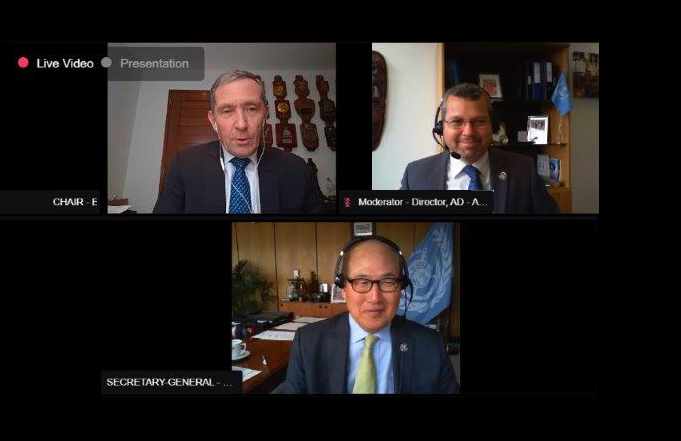Amendments to IMO Convention will be forwarded for adoption at IMO Assembly in December 2021.

The approvals were made at the 33rd extraordinary session of the Council, which was held virtually on 8 April 2021. The amendments will now be transmitted to the thirty-second session of the IMO Assembly, to be held from 6 to 15 December 2021, for consideration with a view to adoption.
The IMO Council has approved draft amendments to the IMO Convention to expand the size of the Council, extend the term of its Members and recognize three additional language texts as authentic versions of the IMO Convention. The approvals were made at the 33rd extraordinary session of the Council, which was held virtually on 8 April 2021.
The amendments will now be transmitted to the thirty-second session of the IMO Assembly, to be held from 6 to 15 December 2021, for consideration with a view to adoption. Until the amendments enter into force, the current structure will remain unchanged.
The proposed amendments would require acceptance by two thirds of the IMO Membership, or 116 Member States (based on the current membership of 174 Member States and two Associate Members) for entry into force.
Expansion of the Council
Upon entry into force of these proposed Council reforms by the Assembly, the IMO Council will increase by 12 Member States, from its current 40 Members to 52. Expanding the size of the IMO Council would see 12 seats allocated to Categories (a) and (b) each and 28 seats to Category (c).
The categories are:
(a) - States with the largest interest in providing international shipping services
(b) - States with the largest interest in international seaborne trade each; and 28 seats to category
(c) - States not elected under (a) or (b) above, which have special interests in maritime transport or navigation and whose election to the Council will ensure the representation of all major geographic areas of the world.
Member term length
Under the approved amendments, Council Members would remain in their roles until the end of the next two consecutive regular sessions of the Assembly, after which they would be eligible for re-election. Since Assemblies are usually held every two years, this would usually mean that Members would serve a four-year term.
Additional authentic languages
Separately, in the spirit of multilingualism embraced by the United Nations system, the IMO Council agreed that Arabic, Chinese and Russian, (which are already official languages of the Organization), should be added as authentic texts of the IMO Convention, supplementing the current authentic texts in English, French and Spanish.
Current Council Members
The current Council Members that have been elected for the 2020-2021 biennium are:
Category (a): China, Greece, Italy, Japan, Norway, Panama, Republic of Korea, Russian Federation, United Kingdom, United States.
Category (b): Argentina, Australia, Brazil, Canada, France, Germany, India, the Netherlands, Spain and the United Arab Emirates.
Category (c): Bahamas, Belgium, Chile, Cyprus, Denmark, Egypt, Indonesia, Jamaica, Kenya, Kuwait, Malaysia, Malta, Mexico, Morocco, Peru, the Philippines, Singapore, South Africa, Thailand and Turkey.
History of the IMO Council
The IMO Council has seen a number of expansions since its original entry into force with 16 Member States in March 1958. The most recent expansion was a result of the 1993 amendments that came into force in 2002 and increased the size of the Council to 40, with Groups (a) and (b) increased to 10 and Group (c) to 20 Member States.
Previous expansions came into force in 1984 - when the Council was increased in size to 32, with 16 places for Group (c); in 1978 when Council membership was increased to 24 Member States by enlarging Group (c) to 12 Member States; and in 1967 - when IMO adopted an amendment to the IMO Convention that increased the size of the Council to 18.
